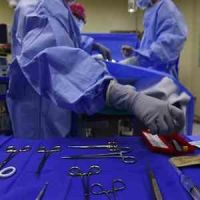According to a new study that examined the effects of sleep deprivation on surgeons, patients that received common operations in the daytime fared no worse in the short-term if their attending physician had worked a graveyard shift the night before as compared to patients whose doctor did not. The study is published in the New England Journal of Medicine.
The findings of the study show that patients whose physicians worked from midnight to 7 a.m. the night before a daytime operation were as likely to die, be readmitted or suffer from complications within 30 days of their procedure as patients whose physicians had not worked after midnight.
The study was conducted in Ontario, Canada. 38,978 patients receiving elective procedures such as knee and hip replacements, hysterectomies or spinal surgeries from 1448 physicians were included in the study. Short-term outcomes were compared for patients receiving 12 elective procedures such as knee and hip replacements, hysterectomies and spinal surgeries.
The conclusions were at odds with previous research that links sleep deprivation in physicians to reduced performance. However, the researchers of this study point out that previous studies focused on residents and medical trainees but since working surgeons and attending physicians have more experience and have more control over their schedules as compared to residents. They can schedule daytime surgeries with longer breaks between their nighttime shifts. On the other hand, residents are expected to work 24- to 36-hour long shifts without scheduled breaks for sleep.
The Accreditation Council for Graduate Medical Education implemented new rules in 2003 that set standards for medical residencies and capped residents' schedules at a maximum of 80 hours per week. The standards also specified that they should not be on call more than every third night. First year residents are limited to 16 hour shifts under rules set in 2011 and require eight hours off between shifts. However, questions about attending surgeons still persist. A study published in 2009 revealed that only 40 percent of surgeons limited their working time to no more than 30 continuous hours.
David Bates, who has previously researched the relationship between physician medical errors and their lack of sleep, said the new study should be reassuring to patients who get surgery after their doctor has worked overnight. But he cautioned the results do not address the effects of long shifts that last days without rest on patient outcomes. He also pointed out that such a study would be difficult to conduct in the U.S. because data about attending surgeon hours isn't collected. In addition, there are too many insurance companies involved in healthcare in the U.S. making it even more difficult.
More studies should be done looking at long-term effects of sleep deprivation on physicians and at the quantities of sleep to patient outcomes, he said.
Source: Kaiser Health
Image Credit: Wikimedia Commons



























